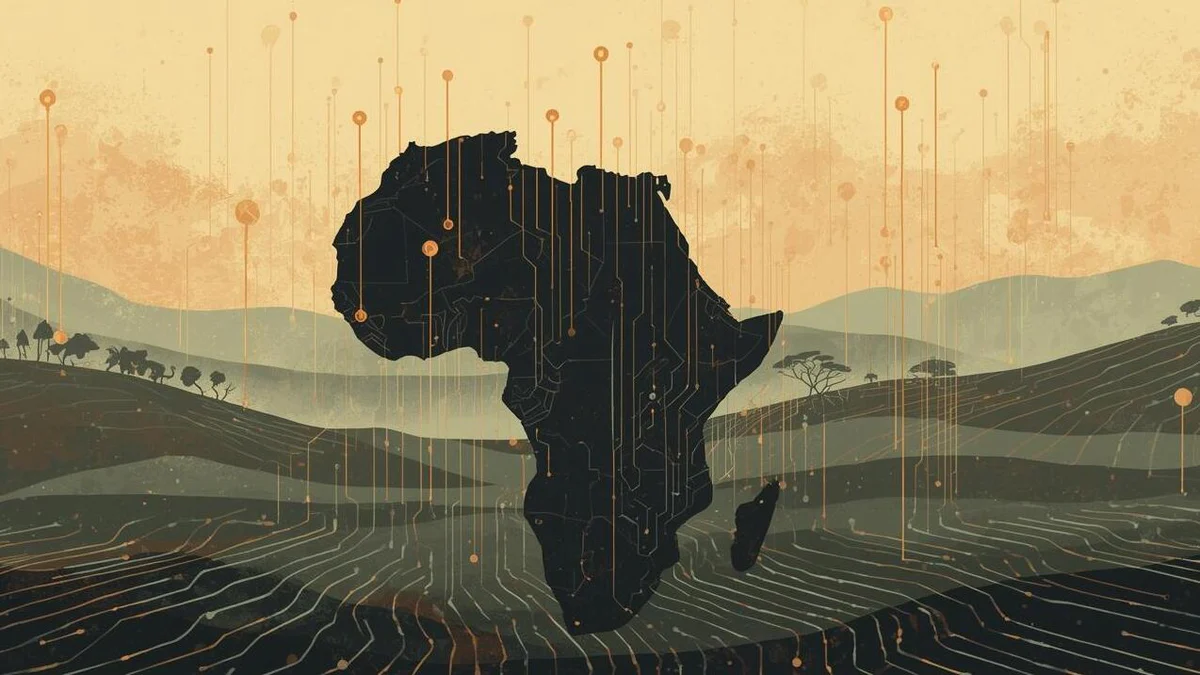Africa's AI Language Battle: Local Languages vs Global Tech Gap
Africa stands at a crucial crossroads in the global AI revolution, where the integration of its 2,000+ languages could transform from a challenge into a strategic advantage. As tech giants dominate AI development, African initiatives are emerging to ensure linguistic diversity in the digital age.

African tech professionals working on AI language processing solutions
As artificial intelligence (AI) rapidly evolves worldwide, a crucial question emerges: How can African local languages find their place in a tech ecosystem dominated by English, Mandarin, and Spanish? While the continent lags in industrial and scientific AI deployment, it simultaneously faces a strategic challenge: ensuring the survival, enhancement, and integration of its languages in tomorrow's digital universe.
Global Context and Technological Asymmetry
The United States, China, and to a lesser extent, Europe, currently control most AI-related infrastructure, funding, and patents. This concentration of power creates significant challenges for African innovation and digital sovereignty.
- Research Concentration: Just ten countries produce 80% of scientific publications in the field
- Private Sector Dominance: Tech giants like Google, Microsoft, OpenAI, Baidu, and Tencent largely dictate R&D priorities
- Infrastructure Gap: Access to supercomputers and large language models remains highly unequal
In this global landscape, Africa faces structural challenges in funding, training, and data availability. However, this deficit could become a strategic advantage if the continent successfully leverages its linguistic and cultural uniqueness.
The Critical Role of African Languages
Africa boasts over 2,000 languages, many fragmented and underrepresented in the databases used to train language models. This linguistic diversity presents both challenges and opportunities for AI development.
- Digital Erasure Risk: Languages like Wolof, Lingala, Swahili, and Hausa face gradual digital invisibility due to data scarcity
- Cultural Stakes: Losing linguistic roots threatens both cultural transmission and cognitive sovereignty
- Growth Potential: Developing structured corpora and targeted machine translation programs could transform this challenge into a competitive advantage
Emerging Local Initiatives
Several African projects are working to bridge the AI language gap:
- Masakhane: A pan-African researcher network focused on African language machine translation
- Academic Innovation: Universities in Nairobi, Johannesburg, and Accra are investing in Natural Language Processing (NLP) laboratories
- Tech Startups: Local entrepreneurs are developing voice solutions adapted to African markets in banking, healthcare, and education
Economic and Political Implications
The language question in AI is fundamentally about technological independence. The stakes are multifaceted:
- Economic Impact: Local players risk marginalization in the global digital economy
- Political Power: States' ability to regulate AI usage could be compromised
- Social Cohesion: A widening gap between globally connected elites and locally rooted populations
Africa's AI gap shouldn't be viewed solely as a disadvantage. The battle for local languages represents a crucial sovereignty dimension and a strategic opportunity. With sustained investment in data corpus development, engineer training, and infrastructure funding, Africa could emerge not as a follower but as an innovative player, capable of reinventing AI to reflect its social, economic, and cultural realities.
Edwin Gyimah
Ghanaian journalist, covering African affairs for the past 10 years.
